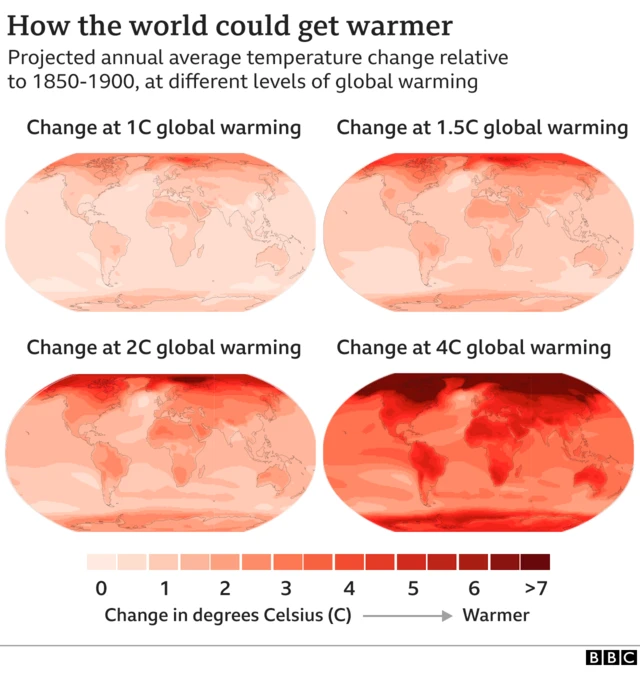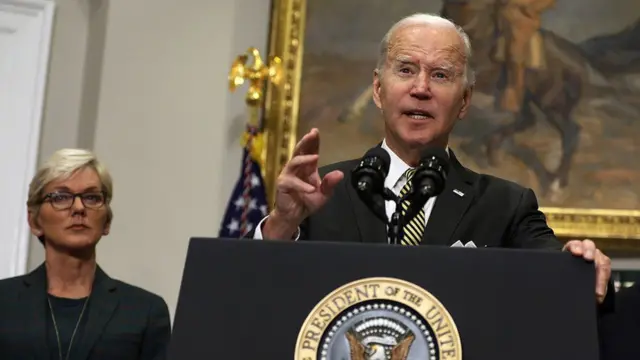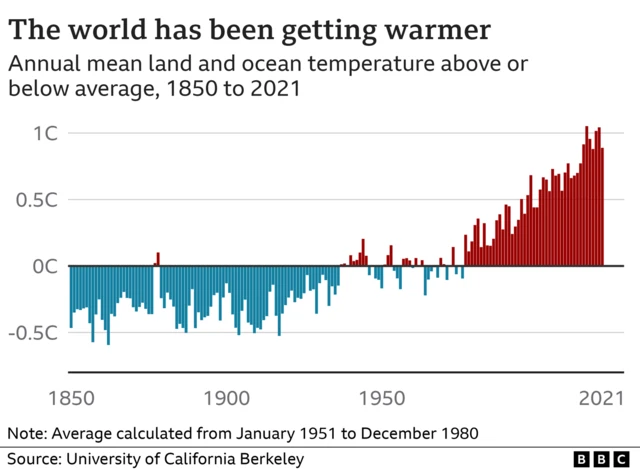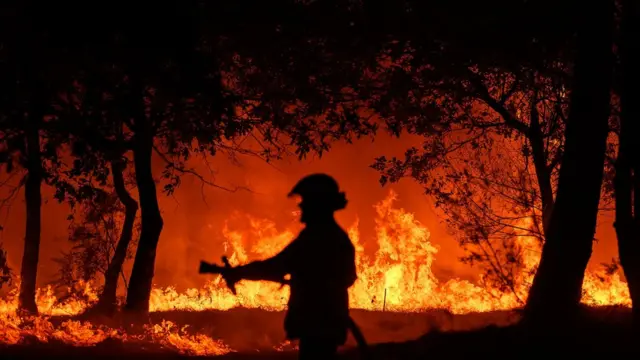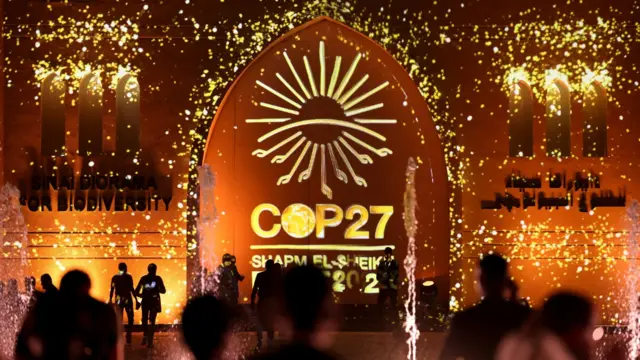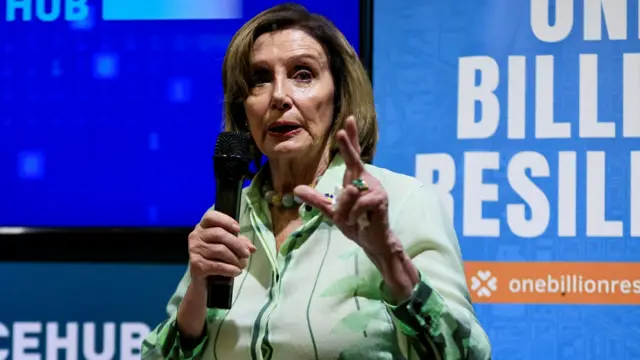Pelosi says the public back Democrats on climate actionpublished at 12:14 GMT 11 November 2022
 Justin Rowlatt
Justin Rowlatt
Climate editor, Sharm el-Sheikh
Two Democratic heavyweights have told the BBC the US will stay focused on climate action, despite the probable loss of one or both houses of Congress.
Nancy Pelosi, the current speaker of the House of Representatives, said America’s progress on climate action has come in the last year despite not getting "one Republican vote" for Biden’s climate legislation.
But Al Gore, the former US vice president, said the Inflation Reduction Act – Biden’s key climate legislation - will “be virtually impossible for opponents to turn over or reverse”.
Gore says that is because the $369bn (£314bn), allocated under the act for climate action, will bring tax credits and subsidies for clean energy in many strongly Republican areas.
The final vote tally of November’s mid-terms were not in when we spoke, but Pelosi said if the Republicans do take the House "we’d still like to have bipartisanship in saving the planet".
"I hope that when they have more responsibility, they will take responsibility," she added.
And she thinks this election shows young people support the Democrats' work on climate change.
"Public sentiment is everything," she said, quoting Abraham Lincoln: "With it you can accomplish almost anything, without it practically nothing."
